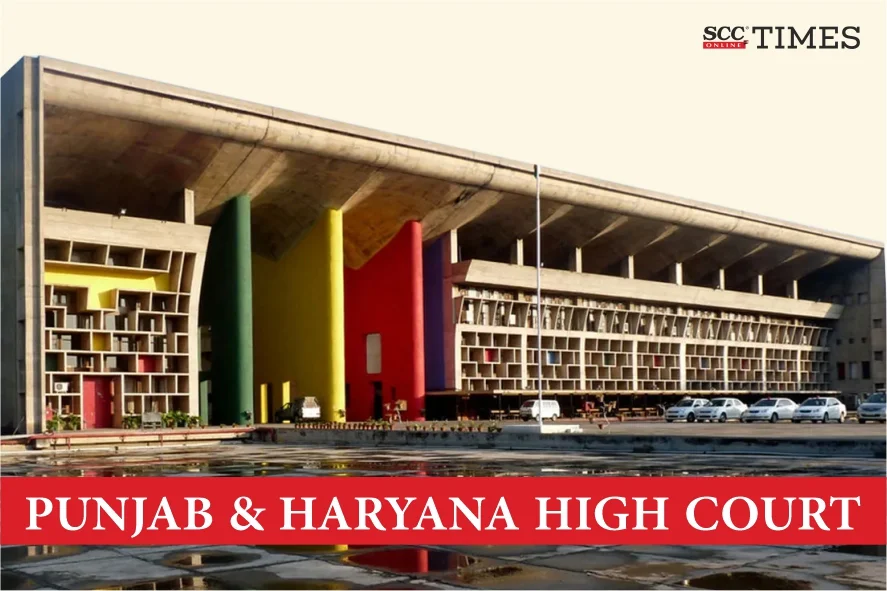Punjab and Haryana High Court: In a case wherein a question arose that whether the Court in exercise of its jurisdiction under Section 4821 of the Criminal Procedure Code, 1973 (‘CrPC’), release a convict on probation of good conduct, when his appeal was still pending before the Sessions Court, Sangrur (‘the Sessions Court’), the Division Bench of Sureshwar Thakur and Sudeepti Sharma, JJ., opined that the jurisdiction invested in this Court under Section 482 of CrPC does not yet leverage in the convict to claim that he should be released on probation of good conduct, especially when an appeal against his conviction and sentence was yet sub judice before the Sessions Court.
The Court stated that the power conferred in the High Court under Section 482 of CrPC, was a residuary power and was to be exercised only when no alternative remedy was available. Since, in the present case, an appeal was pending before the Sessions Court, it constituted an available remedy to the convict, and therefore the residuary jurisdiction invested in this Court under Section 482 of the CrPC, could not be exercised at this stage.
Background
It was alleged that on 2-11-2013, when the petitioner-convict was driving with his family in a car, the car struck against ‘X’ who was then standing on the roadside. However, the petitioner stopped his car and took the injured ‘X’ in his car to the Civil Hospital, Dhuri, for the appropriate medical treatment. However, ‘X’ succumbed to the injuries in the hospital concerned. Thereafter, the FIR was registered under Sections 304-A2 and 2793 of the Penal Code, 1860 (‘IPC’).
After the conclusion of the trial, the Trial Court vide order dated 06-08-2018 drew a verdict of conviction against the convict under Sections 304-A and 279 of IPC. Thus, the convict filed an appeal before the Sessions Court and the said criminal appeal was sub judice before the Sessions Court. Further, during the pendency of criminal appeal, a compromise was entered between the convict and legal heirs of the deceased, and he filed the present petition for quashing the FIR and setting aside the verdict of conviction and subsequent order of sentence.
The question for consideration before the present Court was whether in exercise of its jurisdiction under Section 482 of CrPC, release a convict on probation of good conduct, when his appeal was still pending before the Appellate Court.
Analysis, Law, and Decision
The Court stated that the stark uncontested fact, which emerged to the fore was that there was a sub judice appeal against the verdict of conviction and sentences, as imposed upon the convict. Since the pre-emptory requirement for passing an order for releasing the offender on probation of good conduct, was a report of the probation officer, which was requisitioned only by the competent adjudicatory authority, which in the present case was the Sessions Judge, Sangrur. Moreover, when an objective application of mind was to be made only by the said adjudicatory authority, thus, this Court did not deem it fit and appropriate to truncate or snatch the jurisdiction of the Sessions Judge, Sangrur.
The Court stated that the criminal appeal which was pending in the Sessions Court was continuation of the Trial. Further, after the impugned verdict of conviction and sentence, the convict could have made a submission for probation before the Trial Court. However, the convict appeared to have abandoned or waived the said plea. The Court stated that irrespective of the said petition being waived, and the convict being estopped to claim the benefit of the relevant statutory provisions, the said estoppel was not required to be attracted against the convict, as, it would work extreme hardship to the convict. The petition for release on probation could yet be raised by the convict before the Sessions Court, where the criminal appeal was sub judice.
The Court opined that the jurisdiction invested in this Court under Section 482 of CrPC does not yet leverage in the convict to claim that he should be released on probation of good conduct, especially when an appeal against his conviction and sentence was yet sub judice before the Sessions Court.
The Court stated that the power conferred in the High Court under Section 482 of CrPC, was a residuary power and was to be exercised only when no alternative remedy was available. Since, in the present case, an appeal was pending before the Sessions Court, it constituted an available remedy to the convict, and therefore the residuary jurisdiction invested in this Court under Section 482 of the CrPC, could not be exercised at this stage. The Court granted liberty to the convict to raise the petition for quashing of the offences concerned, before the Sessions Court.
[Lakhvir Singh v. State of Punjab, 2024 SCC OnLine P&H 11310, decided on 24-09-2024]
Advocates who appeared in this case :
For the Petitioner: A.P.S. Deol, Senior Advocate with Karan Kalia, Advocate and Vishal R. Lamba, Advocate.
For the Respondents: Ankur Mittal, Addl. A.G., Haryana with P.P. Chahar, Sr. D.A.G., Haryana; Sartaj Singh Gill, Senior D.A.G., Punjab; Tarundeep Kumar, Advocate.
Buy Penal Code, 1860 HERE
Buy Code of Criminal Procedure, 1973 HERE
1. Section 528 of the Nagarik Suraksha Sanhita, 2023
2. Section 106(1) of the Nyaya Sanhita, 2023 (‘BNS’)








